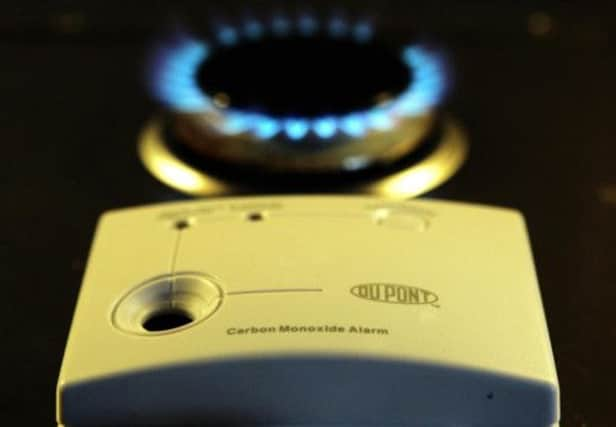Every home to get carbon monoxide alarm


A change in building regulations will require that, from October, alarms are fitted when new or replacement heaters, boilers, fires and stoves are installed in houses, hotels, guest houses or care homes. The owners and gas engineers will both be responsible for ensuring the new laws are adhered to.
For new-build properties, building firms will have to ensure the life-saving alarms, which cost about £15, are in place or face a fine.
Advertisement
Hide AdAdvertisement
Hide AdFigures show an average of 50 people a year die in the UK from carbon monoxide poisoning. It also leads to about 4,000 accident and emergency admissions.
At present, there are no requirements within Scottish building regulations for carbon monoxide detectors to be installed in any properties, although some local authorities state private landlords must have alarms fitted.
This will be first time that such regulations have been introduced affecting private homes.
Planning minister Derek Mackay said the legislation, which the Scottish Government will announce today, was being brought in to prevent more needless deaths.
He said: “The Scottish Government recognises the devastating effect carbon monoxide poisoning can have on people’s lives.
“Not a year goes by where there isn’t an avoidable death in Scotland from carbon monoxide poisoning caused by faulty heating appliances in buildings. There are also a considerable number of incidents where people are treated in hospital for the effects of carbon monoxide poisoning.
“That is why, from 1 October, Scottish building regulations will require carbon monoxide alarms to be fitted when a new or replacement boiler or other heating appliance is to be installed in a dwelling and other buildings with bedrooms.”
Inhaling carbon monoxide (CO), which is colourless and odourless, reduces the blood’s ability to carry oxygen. It can lead to brain damage among those who survive.
Advertisement
Hide AdAdvertisement
Hide AdFaulty central heating systems, gas appliances and fires, or blocked flues and chimneys can result in CO poisoning.
Louis Blake, from the Carbon Monoxide – Be Alarmed! campaign, said: “An audible carbon monoxide alarm is the only way to protect yourself and your family.
“This change to the Scottish building regulations will see more detectors in Scottish homes, which will save lives. However, we urge people to act now to protect themselves from carbon monoxide and buy an alarm today.”
CO is known as the silent killer because it cannot be seen, smelled or tasted. Combustion appliances that use solid fuel, oil or gas all have the potential to cause CO poisoning if they are poorly installed or commissioned, inadequately maintained or incorrectly used.
Children, elderly people, pregnant women and those with respiratory problems are particularly at risk. Symptoms are similar to those of flu, and include tiredness, headaches, nausea, chest pains, sudden faintness, erratic behaviour, diarrhoea and stomach pains.
Ceri Ross, 60, from Gifford, East Lothian, died of CO poisoning in October 2009 when the chimney of her home became blocked after work was carried out by builders. She collapsed as a result of a build-up of the gas in her livingroom.
Her daughter, Helen, 26, said the tragedy highlighted the importance of having CO alarms in homes heated by solid fuel such as coal.
The builders who had carried out the work later pleaded guilty to violating health and safety regulations and were fined £15,000.
Advertisement
Hide AdAdvertisement
Hide AdStacey Rodgers, whose ten-year-old son Dominic was killed when fumes from a neighbour’s faulty boiler seeped into his bedroom in 2004, has been campaigning for the introduction of compulsory CO alarms across the UK for almost a decade.
Ms Rodgers, 36, from Yorkshire, said: “Every home should be fitted with a carbon monoxide alarm and what Scotland is doing is clearly leading the way.
“It’s not enough to tell homeowners to get one themselves. In my case, the CO came not from my home but next door.”
The new regulation was also welcomed by Graeme Brown, director of Shelter Scotland, who said it would improve the safety of rented properties.
He said: “It is crucial homeowners and landlords carry out the necessary gas safety checks and ensure that the alarms are maintained properly.”
The Gas Safe Register last month warned holidaymakers about the dangers of CO, after the poisoning, some of it fatal, of 40 people in tents, caravans, cottages or boats in the past two years. Discarded barbecues that emit CO when cooled were blamed for several incidents.